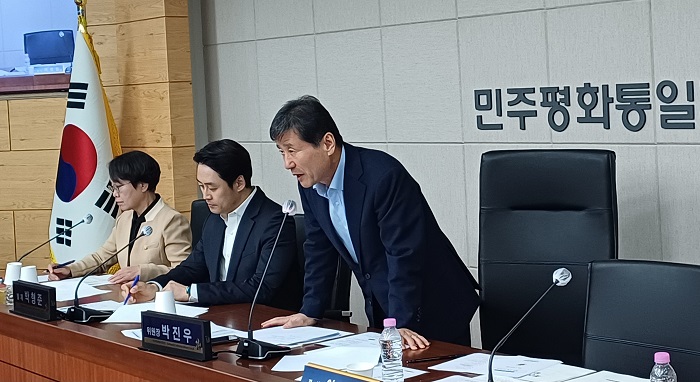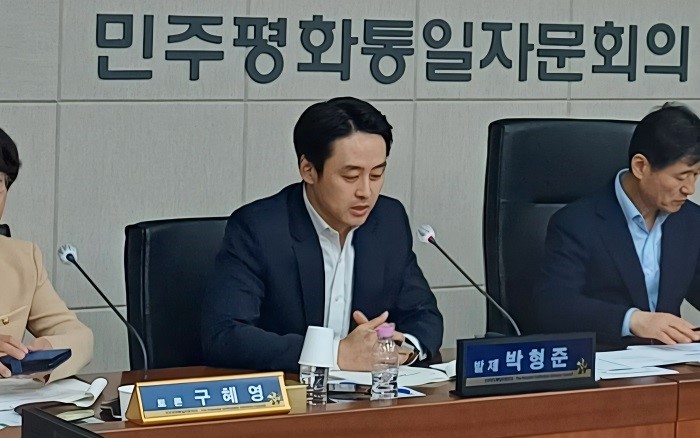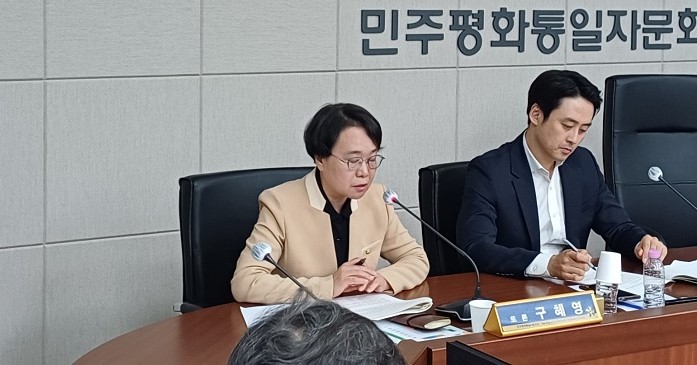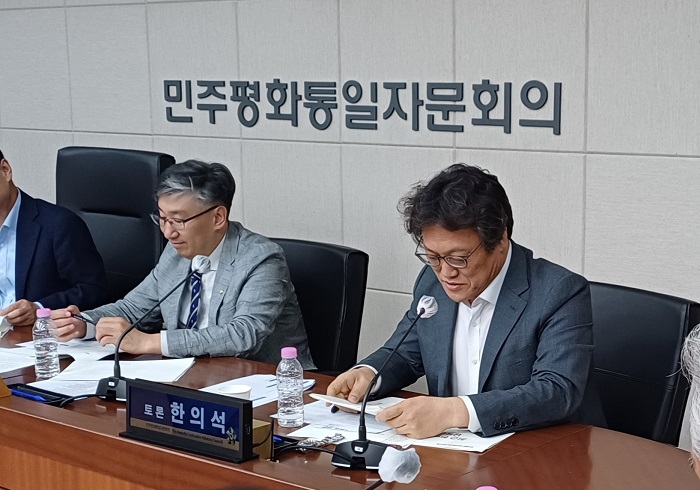Exchange and Cooperation Standing Committee Holds 2nd Quarter Meeting
- Consultation & Advice Division
- 05-26-2024
Exchange and Cooperation Standing Committee Holds 2nd Quarter Meeting
The PUAC Exchange and Cooperation Standing Committee (Chairman Park Jin-woo) held a meeting for the second quarter policy recommendation on May 22 in the conference room on the first floor of the Secretariat.

▲ A view of the meeting
The meeting, attended by 34 members of the Exchange and Cooperation Standing Committee, consisted of a keynote presentation by Professor Park Hyung-jun of Konkuk University on the topic of "How to Establish Unification Education to Lay a Foundation for Liberal Democratic Unification", a panel discussion by Professor Koo Hye-young of Hanyang Cyber University and Professor Han Eui-seok of Sungshin Women's University, and a general discussion in which all committee members participated.

▲ Opening remarks by Chair Park Jin-woo
In his opening remarks, Chairman Park Jin-woo said, "The public interest in the issue of reunification is gradually decreasing, and there is even skepticism about reunification in some circles.” “We, the members of the standing committee, need to discover and advise various novel policies to help the President faithfully fulfill his duty to peacefully reunify the country," he said.
The opening remarks were followed by the keynote presentation and discussions.

▲ Keynote presentation by Professor Park Hyung-jun, Konkuk University
Professor Park Hyung-jun said in his keynote presentation that unification education is necessary to lay a foundation for liberal democratic unification in terms of establishing a new milestone of unification (President's March 1 commemorative speech), integrating the national consensus for the implementation of constitutional values, and increasing interest in unification. To this end, Park argued that it is necessary to shift the paradigm of unification education, promote customized unification education that takes into account the characteristics of learners, implement education that includes such content as peace (removing the threat of war), prosperity (economy), and stability (social issues), and prepare educational programs based on experience and sharing.

▲ Panel discussion by Professor Koo Hye-young, Hanyang Cyber University
Professor Koo Hye-young called for the use of the Demilitarized Zone as a space for unification education, training of unification education instructors, internationalization of unification education, and operation of a consistent unification education support law and unification education guidelines. Professor Koo particularly emphasized that unification education must be free from pressures reflecting political interests in order to be properly implemented.

▲ Panel discussion by Professor Han Eui-seok, Sungshin Women's University
Professor Han Eui-seok mentioned the importance of liberal democratic unification education and the need to understand the core values and institutions of liberal democracy, saying, "We need a perspective of realizing laws and policies based on consensus, not a paradigm shift." To this end, he emphasized the need for education that utilizes differentiated content and various delivery methods and uses the cases of North Korean defectors.






▲ General Discussion
In the general discussion, participants suggested finding out a way to embrace North Koreans in a way that preserves the pride of the South Korean people; a comprehensive review of the reasons for the decline in public aspiration for reunification; internationalization of reunification education and reunification education centered on North Korean defectors; and providing a stage where people can think about reunification on their own, rather than being given one-sided instruction.
Meanwhile, the Exchange and Cooperation Standing Committee will review the opinions discussed on the day and publish them in June along with other standing committees’ policy recommendations in the PUAC second quarter policy recommendation report.
-
How satisfied are you with the information you have reviewed?







